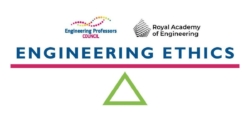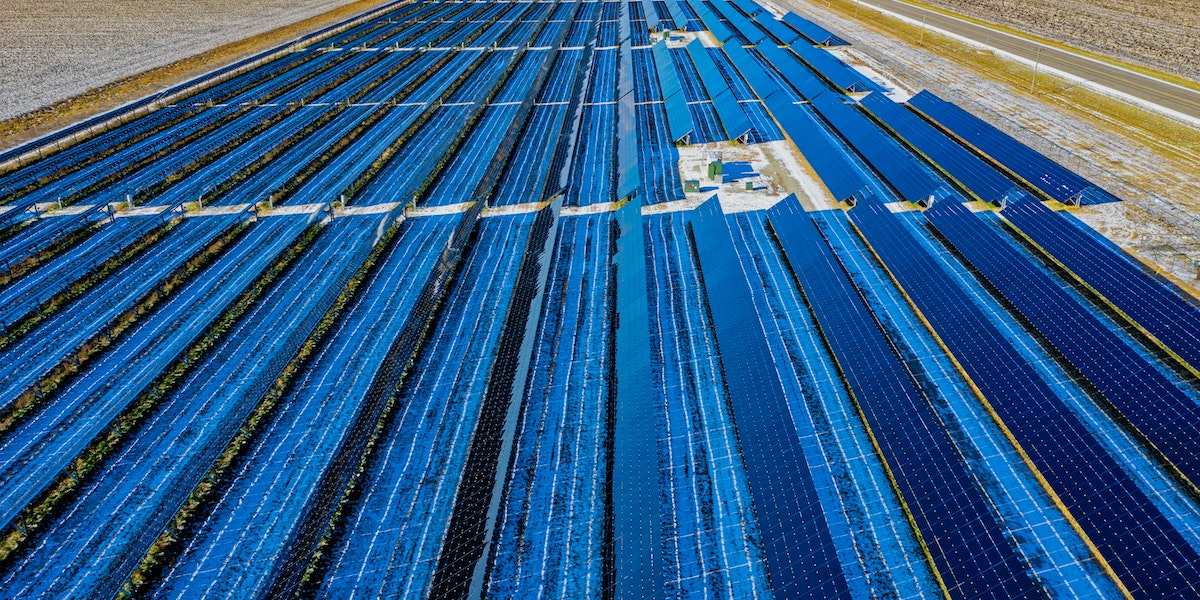Authors: Professor Sarah Hitt SFHEA (NMITE); Dr Nik Whitehead (University of Wales Trinity Saint David); Dr Matthew Studley (University of the West of England, Bristol); Dr Darian Meacham (Maastricht University); Professor Mike Bramhall (TEDI-London); Isobel Grimley (Engineering Professors’ Council).
Topic: Trade-offs in the energy transition.
Engineering disciplines: Chemical engineering, Electrical engineering, Energy.
Ethical issues: Sustainability, Honesty, Respect for the environment, Public good.
Professional situations: Communication, Bribery, Working cultures.
Educational level: Intermediate.
Educational aim: Practise ethical reasoning. Ethical reasoning applies critical analysis to specific events in order to consider, and respond to, a problem in a fair and responsible way.
Learning and teaching notes:
This case requires an engineer with strong convictions about sustainable energy to make a decision about whether or not to take a lucrative contract from the oil industry. Situated in Algeria, the engineer must weigh perspectives on environmental ethics that may differ from those informed by a different cultural background, as well as navigate unfamiliar workplace expectations. The engineer’s own financial wellbeing is also at stake, which may complicate decision-making. As a result, this case has several layers of relations and potential value-conflicts. These include values that underlie assumptions held about the environment and its connection to human life and services.
This case study addresses two of AHEP 4’s themes: The Engineer and Society (acknowledging that engineering activity can have a significant societal impact) and Engineering Practice (the practical application of engineering concepts, tools and professional skills). To map this case study to AHEP outcomes specific to a programme under these themes, access AHEP 4 here and navigate to pages 30-31 and 35-37.
The case is presented in two parts. If desired, a teacher can use Part one in isolation, but Part two develops and complicates the concepts presented in Part one to provide for additional learning. The case allows teachers the option to stop at multiple points for questions and/or activities as desired. To prepare for activities related to environmental ethics, teachers may want to read, or assign students to pre-read the following academic articles: ‘Environmental ethics: An overview’ or ‘Mean or Green: Which values can promote stable pro-environmental behavior?’
Learners have the opportunity to:
- analyse value assumptions related to environmental ethics;
- consider whether decisions made by an engineer are ethically acceptable or unacceptable;
- undertake cost-benefit and value trade-off analysis in the context of an ethical dilemma;
- practise argument and reasoning related to an ethical dilemma;
- use heuristics to help ethical decision-making.
Teachers have the opportunity to:
- introduce concepts related to values in environmental ethics;
- informally evaluate students’ argument and reasoning skills;
- integrate technical content in the areas of chemical and / or electrical engineering related to energy trade-offs;
- highlight heuristics as tools for ethical decision-making;
- address cultural and professional norms in different countries.
Learning and teaching resources:
- Environmental Ethics: An overview
- Mean or Green: which values can promote stable pro-environmental behavior?
- RAEng/Engineering Council Statement of Ethical Principles
- Application of solar energy in the oil industry
- The solar good: Energy ethics in poor markets
- Environmental ethics decision making guide
- 7-step guide to ethical decision making
- Mapping actors and processes
Summary:
You are an electrical engineer who had a three-year contract with a charity in Algeria to install solar systems on remote houses and farms that were not yet connected to the grid. The charity’s project came to an end and you have set up your own company to continue the work. It has been difficult raising money from investors to fund the project and the fledgling business is in debt. It is doubtful that your company will survive for much longer without a high-profit project.
During your time in Algeria, you have made many local and regional contacts in the energy industry. Through one of these contacts, you learn of an energy company operating a large oil field in the region that is looking to convert to solar energy to power its injection pumping, monitoring, and control systems. In doing so, the oil field will eliminate its dependency on coal-fired electricity, increasing production while boosting the company’s environmental credentials. It also hopes to make use of a governmental tax credit for businesses that make such solar conversions.
Optional STOP for questions and activities:
1. Discussion: What is your initial reaction to using solar energy for oil and gas production? What might your initial reaction reveal to you about your own perspectives and values?
2. Discussion and activity: List the potential benefits and risks to implementing this technology. Are these benefits and risks the same no matter which country they are implemented in?
3. Activity: Research the trend for using solar energy in oil and gas production. Which companies are promoting it and which countries are using this technology?
4. Discussion and activity related to optional pre-readings: Consider how your perspective is related to the following environmental values, and pair/share or debate with a peer.
-
- Anthropocentrism versus Biocentrism – are humans above or a part of the environment?
- Intrinsic versus Instrumental – is nature inherently valuable or only valuable because of the use humans can make of it?
- Holism versus Individualism – are certain elements of the environment more valuable than others, or does every part of the ecosystem have equal value?
- Egoism versus Altruism – do we care about the environment as a result of what we gain from it, or regardless of human benefits?
- Obligations to future generations: Do we have a responsibility to provide a safe and healthy environment for humans that don’t yet exist, or for an ecosystem that will eventually change?
Dilemma – Part one:
The following week you receive a phone call in your home office. It is a representative of the energy company named Sami. He asks you to bid for the solar installation contract for the oilfield. At first you are reluctant, it doesn’t seem right to use solar power to extract fuel that will contribute to the ongoing climate emergency. You explain your hesitation, saying “I got into the solar business because I believe we have a responsibility to future generations to develop sustainable energy.” Sami laughs and says “While you’re busy helping people who don’t exist yet, I’m trying to provide energy to the people who need it now. Surely we have a responsibility to them too?”
Sami then quotes a figure that the company is willing to pay you for the project work. You are taken aback at how large it is – the profit made on this contract would be enough to pay off your debts and give your business financial security moving forward. Still, you hesitate, telling Sami you need some time to think it over. He agrees and persuades you to attend dinner with him and his family later that week.
Optional STOP for questions and activities:
1. Discussion: Have you done anything wrong by accepting Sami’s dinner invitation?
2. Discussion: Environmental ethics deals with assumptions that are often unstated, such as the obligation to future generations. Like Sami, some people find that our obligation is greater to people who exist at this moment, not to those that don’t yet exist. Do you agree or disagree with this position? Why? Can we maintain an obligation to future generations while simultaneously saying that this must be weighed against the obligations in the here and now?
3. Activity: Both cost-benefit and value trade-off analyses are valuable approaches to consider in this case. Determine the possible courses of action and undertake both types of analysis for each position by considering both short- and long-term consequences. [use the Mapping actors and processes article to help with this activity].
4. Activity: Using reasoning and evidence, create arguments for choosing one of the possible courses of action.
5. Activity: Undertake technical calculations in the areas of chemical and / or electrical engineering related to carbon offset and solar installations.
Dilemma – Part two:
When you arrive at Sami’s house for dinner you are surprised to find you aren’t the only guest. Leila, a finance manager at the oil company is also present. During the meal, she suggests they are considering investing in your business. “After all,” she points out, “many of our employees and their families could really use solar at their homes. We have even decided to subsidise the installation as a benefit to them.”
You are impressed by the oil company’s commitment to their workers and this would also guarantee you an income stream for 3-5 years. Of course, to guarantee the investment in your company, you will have to agree to undertake the oil field installation. You comment to Leila and Sami that it feels strange to be having these formal discussions over a family meal. “This is how we do business here,” says Sami. “You become part of our family too.”
Optional STOP for questions and activities:
1. Discussion: Do you accept the contract to complete the installation? Do you accept the investment in your company? Why, or why not?
2. Discussion: Is this bribery? Why, or why not?
3. Activity: Role-play the conversation between Sami, Leila, and the engineer.
4. Activity: Use heuristics to analyse possible courses of action. One heuristic is the Environmental ethics decision making guide. Another is the 7-step guide to ethical decision-making.
This work is licensed under a Creative Commons Attribution-ShareAlike 4.0 International License.
Any views, thoughts, and opinions expressed herein are solely that of the author(s) and do not necessarily reflect the views, opinions, policies, or position of the Engineering Professors’ Council or the Toolkit sponsors and supporters.




